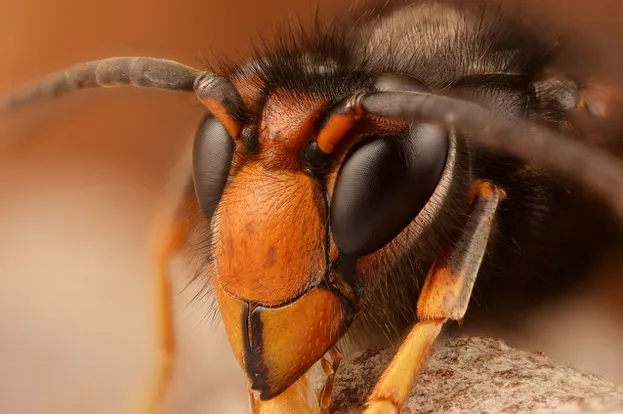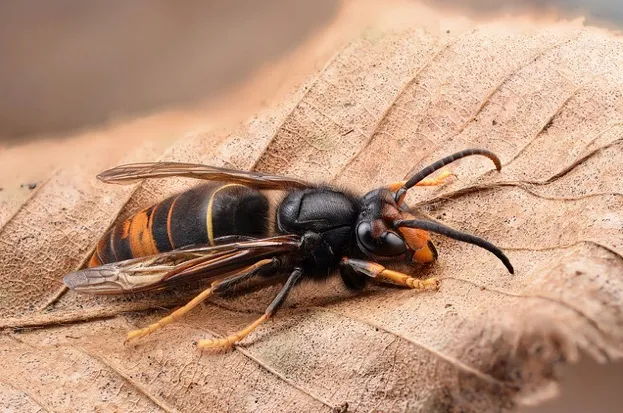UPDATE 29 September: The nest was found by a team of been inspectors and treated with insecticide on 28 Septebmer. It was removed from the site and taken away for testing.
The sighting of an Asian hornet near Woolacombe in Devon has been confirmed by the National Bee Unit.
Whilst the species is smaller than the native hornet, the sighting will worry beekeepers and conservationists as the Asian hornet predates on honeybees and other insects, including hoverflies.
“While the Asian hornet poses no greater risk to human health than a bee, we recognise the damage they can cause to honeybee colonies,” says Nicola Spence, Defra deputy director for Plant and Bee Health.
“That’s why we are taking swift and robust action to locate and destroy any nests in the Devon area following this confirmed sighting.”

A local control centre will be opened in North Devon, and surveillance and monitoring will be carried within two kilometres of the initial sighting by the National Bee Unit.
Nest disposal experts will be preparing to kill any Asian hornets that are found, and to destroy any nests.
This sighting of the potentially invasive species is the first since a nest was discovered and destroyed in Gloucestershire in 2016.
“The Asian hornet is a threat to our pollinating insects and so it is really great that people are looking out for this species,” says Professor Helen Roy, an ecologist at the Centre for Ecology and Hydrology.
“Like the [native] European hornet, Asian hornets are voracious predators and will feed on range of insects which they chew into a ball to feed to developing larvae back in their nest.”

The predatory insect is native to Asia and first appeared in Europe in 2004, amongst an import of Chinese pottery to France. The species is now found in a number of European countries, including Italy, Switzerland and Spain.
If not controlled, a single Asian hornet nest could allow the species to spread across the UK and result in hundreds of thousands of them within just two decades. Read about this research in our previous news story.
The Asian hornet can be distinguished from the native species by its size and by its markings.
A free Asian Hornet Watch app was launched last year to help members of the public to report possible sightings of the invasive species.
The Asian hornet is one of a number of invasive species which could cause problems in the UK if they become established. Click here to learn more.
Main image: An example of an Asian hornet © Giles San Martin
